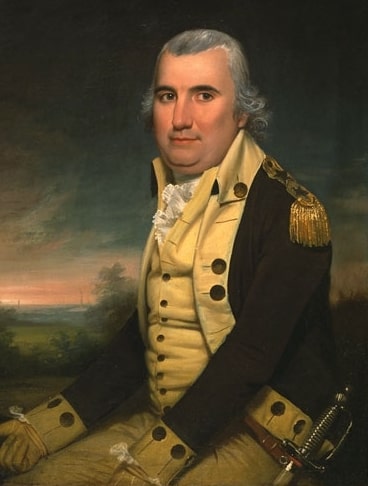
Charles Cotesworth Pinckney of South Carolina served in the Revolutionary War and signed the U.S. Constitution. He unsuccessfully ran for President in both 1804 and 1808.
Early Life
Charles Cotesworth Pinckney was born on February 25, 1746, into a wealthy family of Southern planters. Pinckney was educated in England, graduating from Christ Church College, Oxford. He received legal training at London’s Middle Temple and was admitted to the English bar in 1769. When Pinckney returned to South Carolina the same year, he established a law practice in Charleston.
Public Office
Pinckney entered politics with his election to the Provincial Assembly in 1769. He would go on to serve as the attorney general for several South Carolina towns. Pinckney was elected to the Lower House of South Carolina State Legislature in 1776, 1778, and 1782.
Pinckney was an early supporter of independence from Great Britain. During the American Revolutionary War, he served in Continental Army, rising to the rank of brigadier general. After the war, he returned to the South Carolina legislature.
Constitutional Convention
Pinckney also represented South Carolina at the Constitutional Convention. He faithfully attended the proceedings and participated in the debates.
Pinckney served on the Committee of Assumption of State Debts and the Committee of Slave Trade, helping reach the compromise concerning abolition of the international slave trade. Fellow delegate William Pierce stated that “he has received the advantage of a liberal education, and possess a very extensive degree of legal knowledge.”
After signing the Constitution, Pinckney attended the South Carolina ratifying convention and argued in favor of ratification.
Role in New Government
In the new federal government, Pinckney was a loyal Federalist. He served as the Minister to France, holding the position from 1796 to 1798. He was also Major General U.S. Army from 1798-1800, as the United States prepared to go to war with France. Pinckney was the Federalist Party’s Presidential candidate in 1804 and 1808. He lost both times, first to Thomas Jefferson and then to James Madison.
Later Life
After retiring from public office, Pinckney continued his legal practice and engaged in philanthropic endeavors. He was a charter member of the board of trustees of South Carolina College, which would later become the University of South Carolina. Pinckney died on August 16, 1825, in Charleston, South Carolina, at the age of 79. The inscription on his tomb reads: “One of the founders of the American Republic. In war he was a companion in arms and friend of Washington. In peace he enjoyed his unchanging confidence.”







